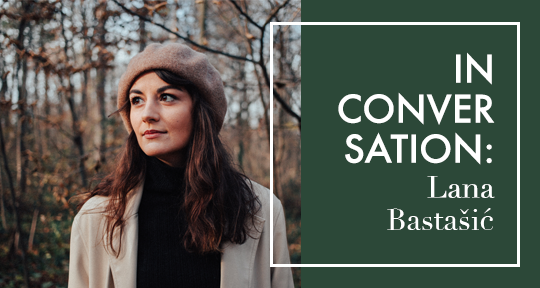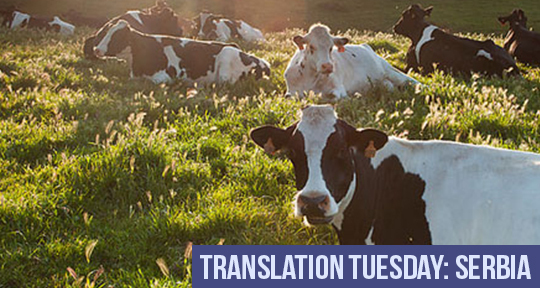This week, our editors are bringing news of their vigorously alive world literatures. From a celebration of Czech letters at the Warsaw Book Fair and the Prague MicroFestival, to a commemoration of iconic Taiwanese writer Li Qiao, to a push for Serbian women’s voices in a collection of short stories—the ongoing efforts of writers, presses, and translators around the world indicate always towards greater and greater realms of understanding.
Julia Sherwood, Editor-at-Large, reporting from the Czech Republic
Held from September 9 to 12, the Warsaw Book Fair was one of the first major industry events to make a comeback after the pandemic-enforced hiatus, with the Czech Republic as the guest of honour. The timing was quite fortuitous, since barely two months after the event, cases were again surging in these two countries, as well as in most of Europe.
Czech literature has been enjoying a real boom among Polish readers, and this was reflected in the strong contingent of leading Czech writers who came to Warsaw. They included Michal Ajvaz, Bianca Bellová, David Böhm, Petr Hruška, Alena Mornštajnová, Iva Procházková, Jaroslav Rudiš, Marek Šindelka, and Kateřina Tučková. Past Asymptote contributor Radka Denemarková—who drew the largest crowds—felt that “in recent times, it has been particularly important for us writers to show solidarity—especially with countries such as Poland and Hungary—creating a kind of enclave of humanism.”
Also popular with Polish readers was a meeting with Petra Hůlová, who presented the Polish translation of her 2018 novel Stručné dějiny hnutí (A Brief History of the Movement), a book she describes as “a feminist manifesto and critique of feminism rolled in one.” Her “provocative satire of a feminist future challenges and unsettles in equal parts” (Kirkus Reviews) has just been published by World Editions as The Movement, in Alex Zucker’s English translation. You can read an excerpt from the book here as well as in BODY.Literature, the Prague-based English-language literary journal whose fall issue also features poetry by Karel Šebek (trans. Ondřej Pazdírek) and Pavla Melková (trans. Joshua Mensch), as well as a chilling absurdist story by Vratislav Kadlec (trans. Graeme Dibble).
On October 18, Hůlová and Zucker read from and discussed The Movement in an event organized by Czech Centre New York. Their conversation (now available to watch on YouTube) also included the writer-translator pair Kateřina Tučková and Veronique Firkusny and the novel Gerta, published by AmazonCrossing earlier this year. On November 22, Firkusny will be featured again as part of European Literature Night, organized by the Czech Centre; she will appear with Elena Sokol, as their joint translation of the final part of past Asymptote contributor Daniela Hodrová’s trilogy, City of Torment, is soon to be published by Jantar Publishing. READ MORE…







